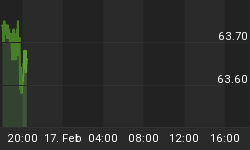One of the more amusing spectacles in the ongoing circus on Wall Street occurs monthly as economic contortionists attempt to twist horrific trade reports into positive news for the American economy. Such was the case today on CNBC, as Steve Leisman and a guest described American consumption as being "a sacrifice," and American consumers as "bearing the brunt of world consumption," and of having an "obligation to consume."
First of all, the word "sacrifice" implies some form of self-denial or restraint. What exactly do Americans sacrifice by indulging their every whim (other then their long-term solvency)? How is borrowing to consume a sacrifice? Actually it is "savings," the deliberate act of under-consumption that is truly a sacrifice. It is foreign consumers who are sacrificing so that Americans don't have to.
Similarly, how can one bear the "burden of consumption?" A "burden" implies suffering, something difficult to tolerate. "Consumption" on the other hand is fun, satisfying, and pleasurable. How can enjoying something desirable be described as burdensome? Production is the true burden. Consumption is its reward. Again, it is foreigners who are bearing America's burden.
Lastly, stating that "Americans have a duty to consume" implies that the rest of the world has "an obligation to produce." This reminds me of the old saying, "nice work if you can get it." It seems to me that foreigners are getting the short end of the economic stick. In fact, described in this manner, it is as if Americans regard the rest of the world as slaves in their global plantation. Would a dinner guest, after the hosts have bought the food, set the table, prepared the meal and washed the dishes, be able to assert with a straight face that the whole enterprise would have been impossible without the his own heroic ability to eat?
The reality is that this type of propaganda is intended to confuse the public with respect to America's true role in the global economy. It is designed to create the false impression that the caboose is in reality the engine, or more accurately, that the parasite is in fact the host. Unfortunately for America, the field hands, (once the cotton is removed from their eyes) will stage a long overdue revolt that finally leaves Americans to bear their own burdens, and to learn the true meaning of the word "sacrifice."
















